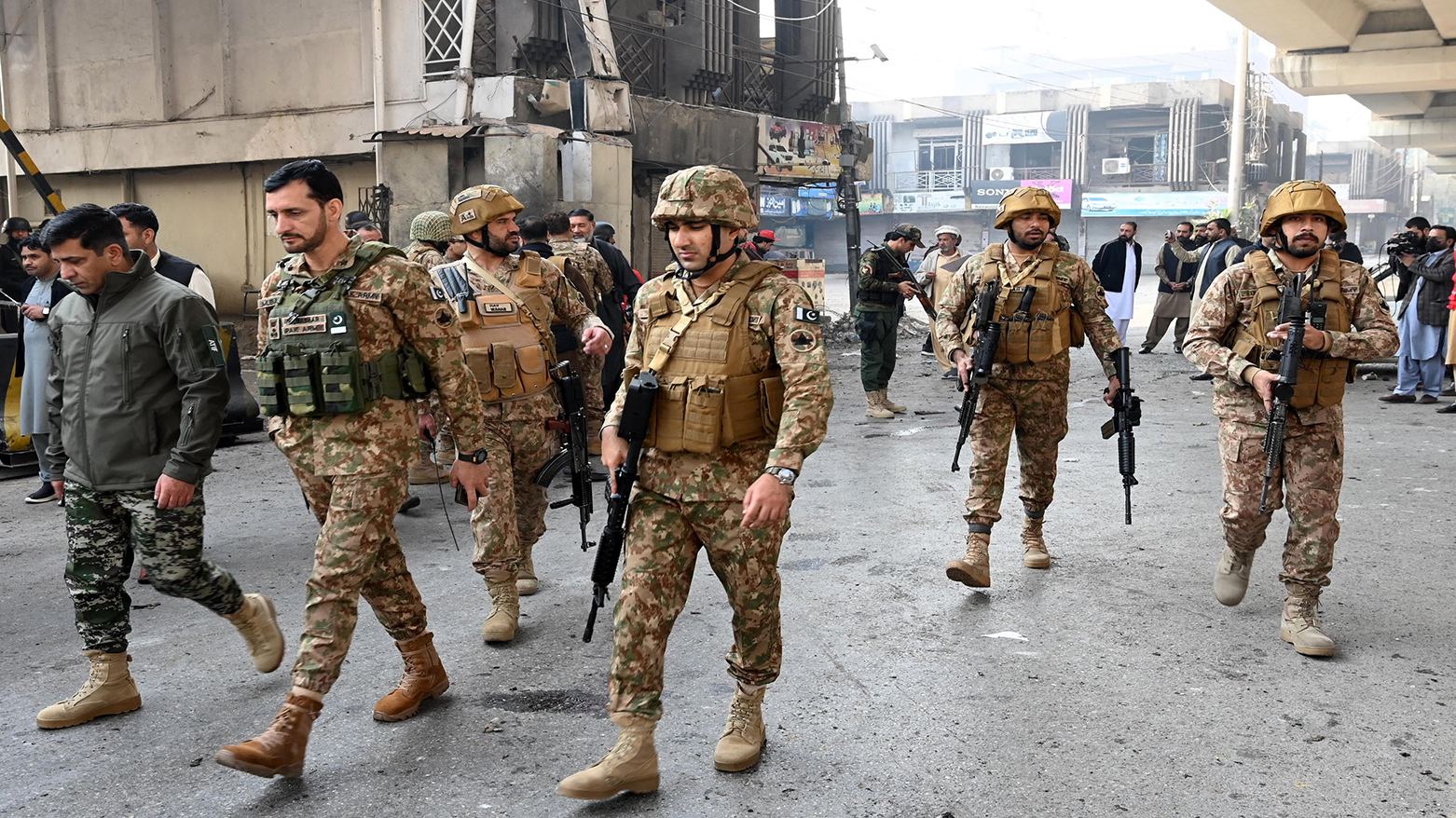Suicide Bombing Kills Three Pakistani Paramilitary Personnel in Peshawar
Attack on border force headquarters heightens security fears amid Pakistan’s escalating regional tensions

ERBIL (Kurdistan24) — A suicide bombing struck the Federal Constabulary headquarters in Peshawar early Monday morning, killing three Pakistani paramilitary personnel and wounding four others, police said, in one of the most serious attacks on the city’s security forces this year.
The assault began at 8:10 a.m. local time, when one attacker detonated explosives at the main gate on Saddar Road, one of Peshawar’s busiest arteries, just before rush hour.
Two additional assailants were shot dead by security forces. Body parts of a suspected bomber were later seen scattered outside the gate, which was pocked with shrapnel holes, according to an AFP reporter at the scene.
Khyber Pakhtunkhwa police chief Zulfiqar Hameed said the operation had formally concluded, and that security units were sweeping the compound for any unexploded ordnance.
No group has yet claimed responsibility.
Prime Minister Shehbaz Sharif condemned the attack, praising the “timely action” of security forces for preventing an even higher death toll. He vowed that the perpetrators “will be identified as soon as possible and brought to justice,” adding that Pakistan “will thwart the evil designs of terrorists who attack Pakistan’s integrity.”
Monday’s bombing comes at a moment of heightened regional instability for Pakistan, raising immediate questions about the identity and motive of the attackers. Khyber Pakhtunkhwa province borders Afghanistan and has long been a focal point for militant activity—particularly from factions of the Tehreek-e-Taliban Pakistan (TTP), ISIS-K, and splinter groups operating with varying degrees of cross-border support.
Given the location and target, security experts say the TTP remains the most likely suspect. However, ISIS-K has also executed high-profile attacks against Pakistani security installations in recent years.
The absence of a claim of responsibility may suggest an ongoing militant regrouping phase—or internal competition among extremist networks active along the Pakistan–Afghanistan frontier.
Last month’s deadly border clash between Afghan Taliban forces and Pakistani troops, which left several soldiers dead, has plunged bilateral ties to their lowest point in years. Pakistan accuses the Taliban of harboring TTP leaders, while Kabul denies direct support.
The deteriorating relationship has raised fears in Islamabad that Afghanistan-based militants may be emboldened to escalate attacks inside Pakistan.
The timing of the Peshawar bombing has also drawn attention in light of the recent India–Pakistan war, a short but intense conflict that was halted only after a high-level diplomatic intervention by U.S. President Donald Trump.
While the ceasefire has held, Pakistan’s security establishment remains on high alert, wary of potential attempts by militant actors to exploit the fragile calm between the two nuclear-armed rivals.
Adding to the complexity is Pakistan’s newly signed strategic security agreement with Saudi Arabia, a pact that declares an attack on one as an attack on both.
The agreement has strengthened Islamabad’s regional alliances but may also make Pakistan a more attractive target for militant groups opposed to Riyadh’s regional role or its counterterrorism posture.
In this broader context, Monday’s bombing may reflect an effort by extremist networks to test Pakistan’s internal security resilience at a time when its geopolitical commitments are expanding, and its border tensions—with both Afghanistan and India—are deepening.
With no claim of responsibility yet and investigations ongoing, Pakistani authorities face mounting pressure to respond decisively. The attack underscores the volatile intersection of domestic militancy and shifting regional power dynamics, which continue to shape Pakistan’s security landscape.